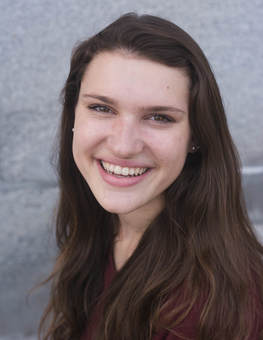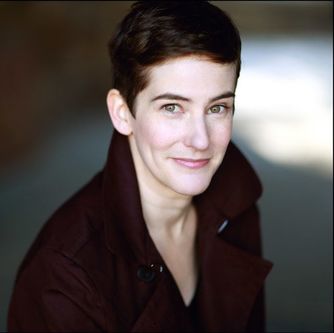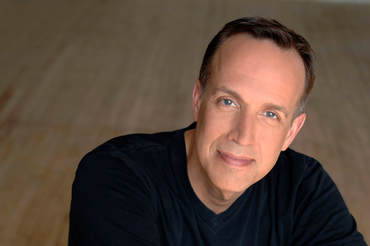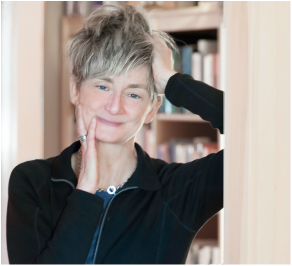|
An interview with Actor Jena Necrason who plays 'Nora' in Vermont Stage's production of "A Doll's House, Part 2."
0 Comments
Dramaturgy by Danielle Sessler
In 1879, when Nora closed the door on her husband Torvald and their three children at the end of Ibsen’s groundbreaking play, A Doll’s House, the world responded in shock. Ibsen's Nora was criticized for being an irrational and frivolous narcissist, an ‘abnormal woman,’ a ‘hysteric,’ a vain egotist who abandons her own children. Ibsen himself was accused of advocating the destruction of the family, and with it, morality itself. Perhaps the crux of the societal concern lay in the fear that this new type of Victorian woman would not only destroy the institution of marriage, but that she would turn gender roles, as they knew it, on their head. As one theatergoer expressed, “Women, in refusing to be compliant, were refusing to be women.” It feels appropriate that now, over a century since Ibsen’s classic premiered, Lucas Hnath (Red Speedo, The Christians, Death Tax), an American playwright, would choose to write A Doll’s House, Part 2, not just as a response to Ibsen’s classic, but as a contemporary continuation of the discussion. Set 15 years after Nora’s disappearance, she has returned, and what ensues may at first feel period - after all, it’s only 1894. But the series of lively debates, questions and arguments presented on marriage, gender roles, motherhood, and love, are as pertinent to today’s contemporary society as ever. Hnath, in an interview with Charlie Rose said, “I think the thing that Ibsen kept coming back to in all his plays is how are we not free, and how could we be more free, and is that really truly even possible?” Over a century since Ibsen’s A Doll’s House, the landscape of women’s rights and gender expectations have vastly changed, and yet the question still remains as pressing as ever – how are we not free, and how could we be more free? Brief Snapshot of Women’s Rights in the Victorian Age:
Today, for the first time in American history, there are more unmarried women than married women, as well as there are more women with higher educational degrees than men, and yet stigmas and inequalities surrounding single women and “spinsters” persist. Beliefs that unmarried women are sexually promiscuous, that they are denying their innate femininity by rejecting procreation and marriage, that they are “crazy old cat ladies,” still permeate our culture. And although the workplace has caught up significantly, overall women only earn on average 80 cents for every dollar earned by a man, and the rights of women are still greatly debated in our homes and in our politics. To this day, it is still just as shocking that a woman would walk out on her family, and children raised with just a father and no mother is much more uncommon than the alternative. Nora was a trailblazer of women’s liberation and feminism – widening the options, and carving a path for a larger, more encompassing, fulfilling future. "Today's unmarried and late married women are walking a road toward independence that was paved by generations of women who lived singly when it was far harder to do so than it is today. Crucially, many of those radically single and late-married women were the ones who were able to devote their unmarried, nonmaternal lives to changing the nation's power structure in ways that might better support today's army of free women." Rebecca Traister, All The Single Ladies. 2016. Vermont Stage will present a A Doll’s House, Part 2 written by Lucas Hnath, directed by Margo Whitcomb at Main Street Landing Performing Arts Center from January 23, 2019 to February 10, 2019.
James Cribbins is playing Christopher in our production of The Curious Incident of the Dog in the Night-time. Get to know him before you see him on stage.
 Elise Killian Elise Killian What character do you play and what do you find most challenging and/ exciting about playing them? I play Medium Alison; something challenging about this role is her body language matching her inner thoughts. I find myself observing the way I sit naturally and little ways I fidget and trying to pinpoint these for Alison. But, this is also so exciting because it’s not everyday you get to change your physicalities into a new person! Now that you have been in rehearsals for a while, what have you enjoyed most while working on this musical so far? Anything that has surprised you? Scared you? These weeks have been incredible! I’ve very much enjoyed working with this amazing cast and artistic team. I love how everyone works together by sharing ideas and “sketching” out scenes to incorporate natural movement. How does great collaboration function best? Great collaboration is possible when there is communication and all members are involved. Mutual trust and understanding is also needed, and fortunately, this team and cast are full of these things! What do you find most challenging about working on a musical versus a play? I have worked on more musicals than straight plays, and I love how the music comes at times when speaking the words just isn’t enough. It’s human nature to sing and make music when we feel so much emotion, and musicals, especially Fun Home, combine dialogue and music in a way that is natural and beautiful. Even though conveying a message through song adds to the show, it is also a challenge at times. What is your favorite moment in this musical? This story is written so beautifully to capture these moments of Alison’s life. One of my favorite moments is when Joan and Bruce are bonding and Medium Alison has a good time with her dad and her girlfriend in the same room. It’s a small, beautiful moment that is so vital to the story of the relationship of her and her father to show that there were shining moments.  Moira Stone Moira Stone What character do you play and what do you find most challenging and/ exciting about playing them? I play adult Alison Bechdel. It's a challenging role for me vocally, and I'm leaning on the wise guidance of musical director Randal Pierce and vocal coach Stacy Chadwell. What do you find most challenging about working on a musical versus a play? I'm not sure I'd call it a challenge, exactly, since I love musicals and working on this one is pretty much pure pleasure, but I am reminded frequently during rehearsal that music is a direct and powerful medium, and part of my job as an actor is to be as direct and powerful. Acting in a well-made musical is all about clearing the high bar that the score sets. And on a purely technical level, singing well performance after performance requires a bit more rest and recovery time between shows. Now that you have been in rehearsals for a while, what have you enjoyed most while working on this musical so far? Anything that has surprised you? Scared you? The answer to all three of those questions is the same: I am surprised, scared, and even a bit pleased to find that my biggest task in working on Fun Home is not discovering and accessing the big emotions that the show calls for, but rather keeping my huge, overwhelming emotions in check enough to be able to perform. In twenty years of working, I've never had this experience. How does great collaboration function? My favorite collaborations have always been between obsessives who play well with others. When a small group of creative folks each have a burning desire to realize their particular vision and the ability to refine and integrate that vision into something larger than themselves? That, in my experience, is when magic can happen. On a less theoretical level, a comfortable room, a shared sense of humor, and snacks go a long way. What is your favorite moment in this musical? Working with director Robin Fawcett the other day on the very first moments of the show was a bit of a revelation. I had been thinking about my entrance as nothing much, a bit of dramaturgical throat-clearing before the music began. Was I wrong! As of this writing, it's my favorite moment in the show. Of course, ask me again in a day or two and I'm sure to have a different answer. This show is so rich.  Actor John Jensen Actor John Jensen In your dream scenario how does great collaboration function? This is my dream scenario! Robin Fawcett, who is directing the show has gathered an incredible group of artists. Robin has an uncanny way of creating a safe environment in rehearsals where you have permission to explore. Everyone involved in Fun Home is working towards a common goal. It's thrilling to be a part of it! Now that you have been in rehearsals for two weeks, what have you enjoyed most while working on this musical so far? Anything that has surprised you? Scared you? Fun Home is so beautifully crafted. Working on this piece has only deepened my love for it. When people ask me how rehearsals are going I always say "I'm having the time of my life!". We just completed our first run-thru of the whole show. That first run-thru is always terrifying, but I think a healthy dose of fear is good. It keeps you working to do you best. What character do you play and what do you find most challenging and/or exciting about playing him? I play Bruce Bechdel, Alison's Father. All of the characters in the show are struggling for acceptance. I remember when I read the script, my first thought was, this could have been my story. I grew up in a small town in Iowa and if I had never ventured beyond its borders or had the freedom to live an authentic life as a gay man this could have been me. It is a challenge to access the darker places of Bruce, but it's exciting to create this multidimensional flawed human being. There is a universal resonance to this story that I think audiences can't help but identify with. What do you find most challenging about working on a musical versus a play? It's a whole other beast. A musical requires that you take extremely good care of your vocal and physical health. In a musical you have the added task of finding the motivation for your character bursting into song. Those transitions are so well written in Fun Home, it make the actors job much easier. This is a vocally demanding show but it has to seem effortless and that takes a lot of work. What is your favorite moment in this musical (doesn’t have to be in our version... it could simply be a moment in the show itself)? There are so many it's hard to pick just one moment. However, when Small Alison played so beautifully by Lulu Barr-Brandt sings the lyric, "Do you feel my heart saying Hi?" in Ring of Keys. It gets me every time. It's that moment of revelation; simple and true and so incredibly powerful. Fun Home is playing October 4-29 at FlynnSpace.  Director Robin Fawcett Director Robin Fawcett In your dream scenario how does great collaboration function? Funny you ask. I was just thinking how everyday this week my motor’s been humming inside a prime example of “dream collaboration.” In our FUN HOME rehearsal room at Elley-Long, where the stage dimensions are humbly taped on the floor, the space is abuzz with a diverse collection of people earnestly pursuing the same hefty goal. I love this. Yet, it’s not simply this shared sense of industry that’s so fine, but a particular kind of approach that, for me, beats all. Let’s call the approach “serious play.” The “serious” part involves everyone taking wholehearted responsibility for their role, coming on time, working hard, and being utterly prepared. Check! The “play” part requires a crazy big, can-do, positive attitude and supportive environment. “Play” requires everyone to keep play, well… in play. And when it is… possibility opens, fear is low, creativity high, laughter happens, mistakes become opportunities, and risks are freely taken leading to, well, wow… Pinch me. Am I asleep? What have you enjoyed most while working on this musical so far? The nouns. To direct, is to go on a twisty-turning adventure with people, places, and things. So, starting with a thing, I’ve so enjoyed my deep dive into the play itself, coming to understand its construction, meanings, and Bechdel inspiration. Because of this I know more intimately why this play is a Pulitzer Prize for Drama Finalist and Tony Award winner for Best Book of a Musical, Best Original Score. Places. Working on this musical, has provided a scavenger hunt leading me to a welcome collection of meaningful places: the end of a long dark hallway at Saint Joseph’s School for a late afternoon cabaret, the kitchen’s and living rooms of new collaborators, Shy Guy Gelato at closing time, NYC Pearl Studios in a torrential rain, and previously forgotten corners of my life. And, then there are the people, the most affecting noun of the adventure. No doubt I’ll be changed by working with and learning from each of them. An additional fun fact for me among the people, is that my Musical Director, Randal Pierce, and Sound Designer, Zach Williamson, were once my students. Now that you are a week into rehearsals, what has surprised you about the process of staging FUN HOME? I am surprised by three things I already knew but not to the extent I know them now. 1. How much better I feel to be out of the phase of preparation solitude. 2. How thrilling it is to give away previously conceived ideas and see them informed and transformed by oh-so-talented others. 3. Staging FUN HOME is an incredible artistic challenge to get to have. Is there anything that scares you? Everything? What do you find most challenging about directing a musical versus a play? While music usually adds a level of complexity to the storytelling, and collaboration, and scheduling, and staging turned choreography, I find the added complexity more than balanced by the inspiration I take from this incredible ingredient -- music! The challenge when directing non-musicals, is to find and conjure the sense of music when there is none. What is your favorite moment in this musical? There’s a glimmer-of-a-moment at the end of the play when Small Alison gives her Dad instructions on how to hold her up above him. It’s a moment that could be missed in the rich musical layers of the Finalé. But, if not missed, it is a lovely turning point, when Alison finds in a fleeting memory, and through her younger self, a key to an otherwise closed door. How is the musical adaptation different from the graphic novel? It’s interesting to compare and contrast these two versions of Alison Bechdel’s story: one a graphic novel and the other a musical for the stage. In doing so, there are obvious differences in the artistic forms, story telling approach, and level of detail. But what has interested me is a surprising comparison I’ve found between the 232 page graphic novel and the 75-minute play. It’s a comparison that captures the beauty of the translation from one art form to another. Whether intentional or not, there’s an uncanny parallel between the cartoon line of the novel and the instrumental line in the soundscape of the play. Incredibly, the instrumental line of the musical provides a landscape of atmospheres, themes, symbols, and commentary on the dialogue and lyrics, much like the cartoon lines non-verbal relationship to the captions. Fun Home is playing October 4-29 at FlynnSpace. |
Archives
January 2019
Categories
All
|



